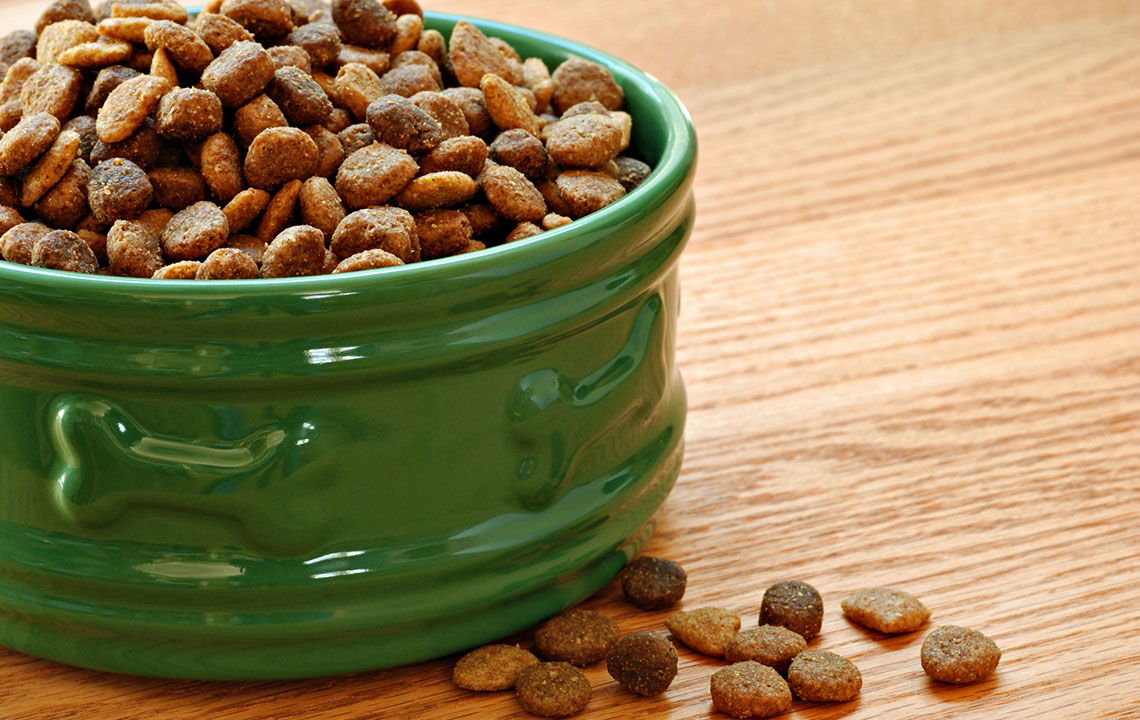Comprehensive Guide to Key Ingredients in Dry Dog Food and Their Impact on Pet Health
This comprehensive guide explores essential ingredients in dry dog food, detailing their health benefits and how to select the best diet for your pet. Covering proteins, grains, vegetables, fruits, and healthy fats, it offers valuable insights for dog owners aiming to improve their pet’s nutrition and well-being. Learn about the nutritional value of each component and practical tips for choosing high-quality dry dog food tailored to different breeds and life stages, supported by veterinary advice.

Dry dog food, popularly known as kibble, has become a staple in pet nutrition due to its convenience, affordability, and long shelf life. It offers a straightforward way for dog owners to provide their pets with a balanced diet that meets various nutritional needs across different ages, breeds, and health conditions. Understanding the fundamental ingredients that compose dry dog food is essential for ensuring your furry friend receives all the necessary nutrients for optimal health and vitality. This detailed exploration will cover the common components found in dry dog food, their health benefits, and tips on selecting the best diet tailored to your dog’s individual needs.
Exploring the Main Components in Dry Dog Food
Dogs, much like humans, require a well-rounded intake of vital nutrients, including vitamins, minerals, proteins, carbohydrates, and fats. These nutrients support overall health, growth, immune function, and energy levels. Most commercial dry dog foods are formulated to mirror this balanced nutrient profile. Here, we delve into the key ingredients that form the backbone of high-quality dry dog food formulations.
While the specific formulations vary among brands, most dry dog foods incorporate a mix of animal-based proteins, plant-based sources, grains, vegetables, fruits, and healthy fats. Let’s analyze each of these components in detail to understand their importance and health benefits for dogs.
1. Animal-Based Proteins: The Foundation of Canine Nutrition
Protein is fundamental to a dog’s diet as it provides essential amino acids necessary for muscle development, tissue repair, and overall cellular function. Quality animal proteins are a primary ingredient in most dry dog foods, and common sources include beef, chicken, turkey, lamb, and fish. These ingredients are rich in amino acids that are easily digestible and compatible with canine physiology.
Organ meats, such as liver and kidneys, are also incorporated into some formulas due to their high nutrient density. Liver, specifically, is an excellent source of iron, vital for red blood cell production and oxygen transport within the body. Incorporating a variety of protein sources ensures diversity in amino acid profiles and supports canine health across different breeds and life stages.
2. Eggs and Legumes: Plant-Based Protein Alternatives
Eggs are a complete protein source, offering high digestibility and rich nutrients like selenium and riboflavin (vitamin B2). They contribute to a balanced diet without the issues associated with some meat ingredients, such as flavor sensitivities. For dogs with meat allergies or sensitivities, plant-based proteins serve as reliable alternatives. Legumes like lentils, peas, soy, and beans provide valuable protein, fiber, and complex carbohydrates, supporting digestive health and steady energy release.
3. Whole Grains and Cereals: Carbohydrate Powerhouses
Carbohydrates are a vital energy source for active and working dogs. Whole grains such as oats, brown rice, quinoa, and barley not only supply calories but also deliver a myriad of micronutrients, antioxidants, and fiber. These components promote healthy digestion and help maintain a healthy weight. Ingredients like rice bran and beet pulp further contribute digestible fiber, aiding in regular bowel movements and gut health.
4. Root Vegetables: Natural Nutrient Boosters
Root vegetables such as potatoes and sweet potatoes are excellent sources of carbohydrates, fiber, and antioxidants like beta-carotene. These nutrients support immune function, eye health, and digestion. Their inclusion also adds natural sweetness and palatability to the food, encouraging better intake.
5. Vegetables: Essential Micronutrients and Fiber
Vegetables like peas, carrots, and pumpkin are rich in fibers, vitamins, minerals, and antioxidants. Pumpkin, for instance, is known for its digestive benefits, helping soothe upset stomachs and regulating bowel movements. Leafy greens, such as spinach, contribute minerals and promote mineral absorption. These ingredients help support overall health, energy levels, and immune defenses.
6. Fruits: Natural Vitamins and Enzymes
Fruits like apples, blueberries, and cranberries offer natural sugars, vitamins, antioxidants, and dietary fiber. They enhance the flavor profile of the food and provide additional health benefits, including anti-inflammatory properties and improved immunity. Proper inclusion of fruits ensures a well-rounded diet that replicates the variety found in a natural canine diet.
7. Fish and Healthy Fats: Omega-3s and Skin Health
Fish, especially salmon and other fatty fish, are packed with high-quality protein, omega-3 fatty acids, calcium, and essential nutrients. Omega-3s promote healthy skin, a glossy coat, and support brain function. Healthy oils like fish oil, flaxseed oil, and canola oil are added to enhance nutrient absorption and provide anti-inflammatory benefits. These fats are crucial for maintaining your dog’s overall vitality and long-term health.
The synergy of these ingredients, when combined in balanced proportions, supports the development of strong bones, effective digestion, robust immune system, and optimal overall health. Many dog food recipes incorporate these components tailored to specific breed sizes, life stages, and individual sensitivities. For example, a salmon and rice formula may be ideal for active adult dogs, while a lamb and apple mix could suit sensitive digestion needs. Consulting a veterinarian is always recommended to select the most suitable diet for your canine companion.
How to Choose the Best Dry Dog Food
Determining the best dry dog food involves considering your dog’s age, breed, activity level, health status, and taste preferences. Puppies and small breeds require higher calorie-dense foods with increased nutrient concentrations due to their faster metabolisms, while large breed dogs need diets with controlled fat and sodium levels to support joint health and prevent obesity. Sensitive or allergic dogs may require specialized formulas free from common allergens like grains or certain proteins.
Careful reading of ingredient labels and consulting your veterinarian can help identify high-quality options that meet your dog’s specific needs. Look for foods where animal proteins are listed among the top ingredients, avoid those with excessive artificial additives or fillers, and prioritize formulas with wholesome, recognizable ingredients.
Where to Purchase Premium Dry Dog Food
High-quality dry dog food can be purchased through multiple channels, including online platforms like e-commerce websites, brand-specific online stores, local pet stores, veterinary clinics, and large retail chains. Subscription services with home delivery offer the added convenience of regular supply and potential cost savings. Always remember to review ingredient lists and product reviews before making a purchase, and consult with your veterinarian when transitioning to a new diet. Proper diet selection is a crucial step in ensuring your pet’s health, longevity, and happiness.
In conclusion, understanding the key ingredients and their health benefits in dry dog food helps pet owners make informed decisions for their furry friends. A balanced diet composed of high-quality proteins, healthy fats, wholesome grains, vegetables, and fruits can significantly enhance a dog’s quality of life. Tailoring this diet to your dog’s unique needs, with professional guidance, ensures a happy, healthy life for your canine companion.





